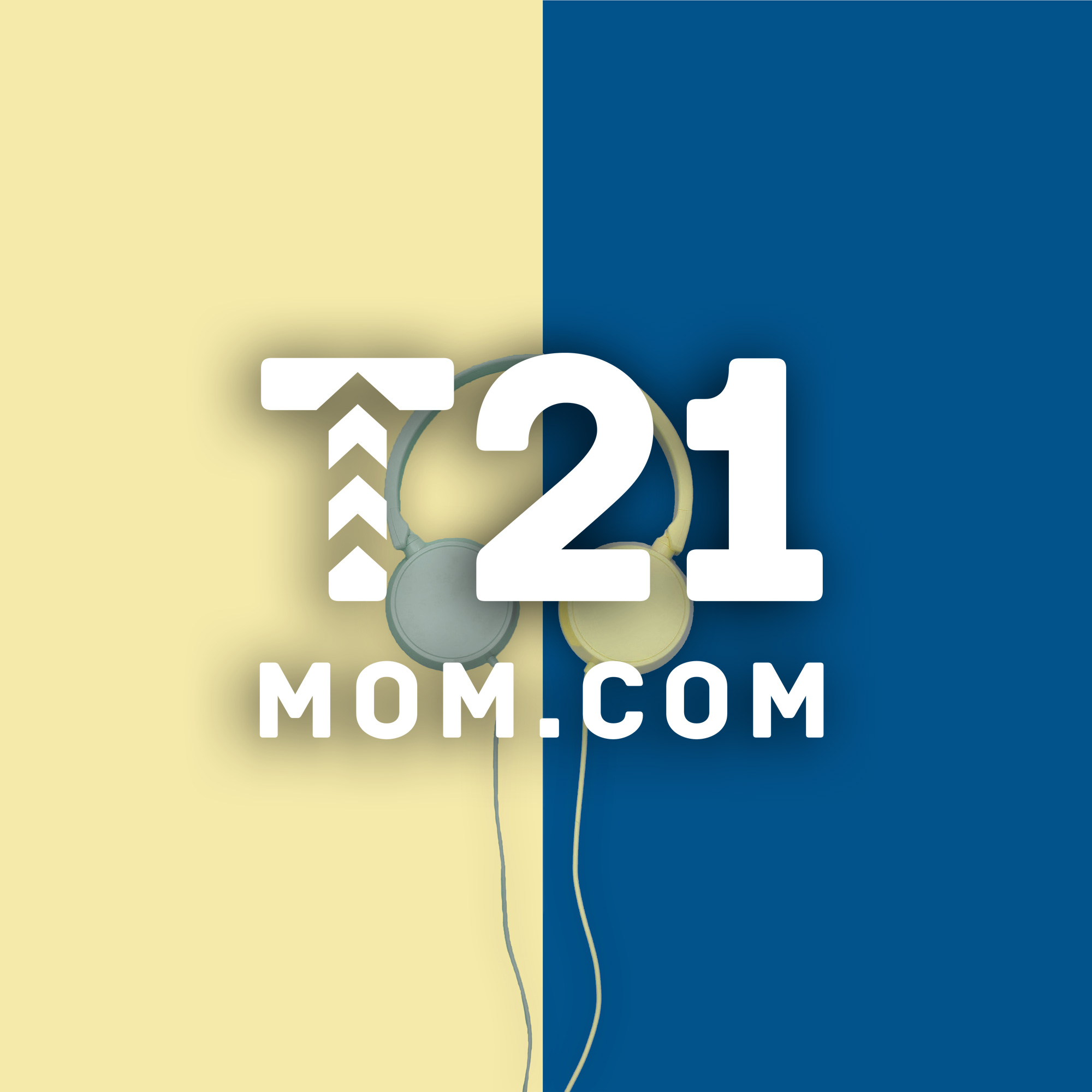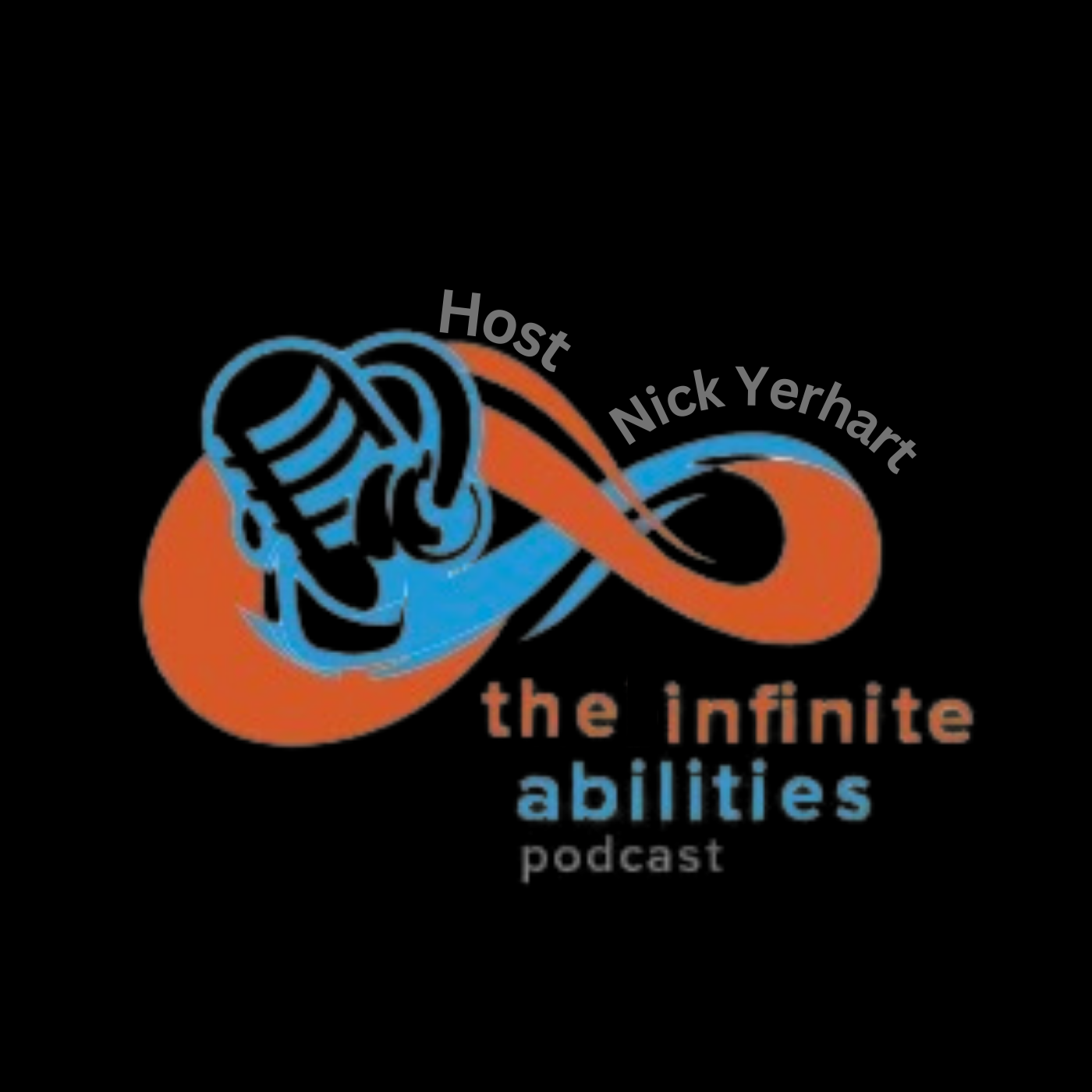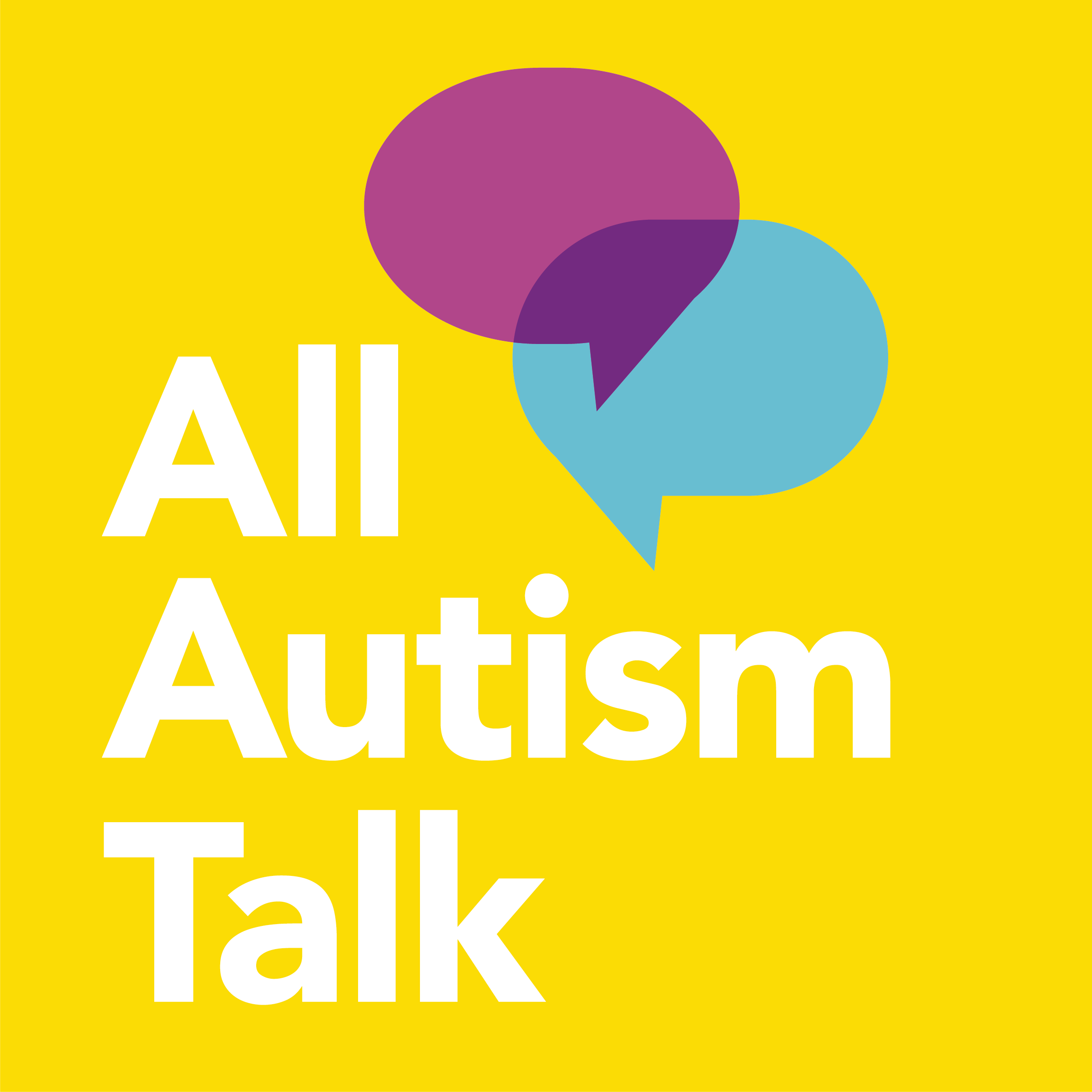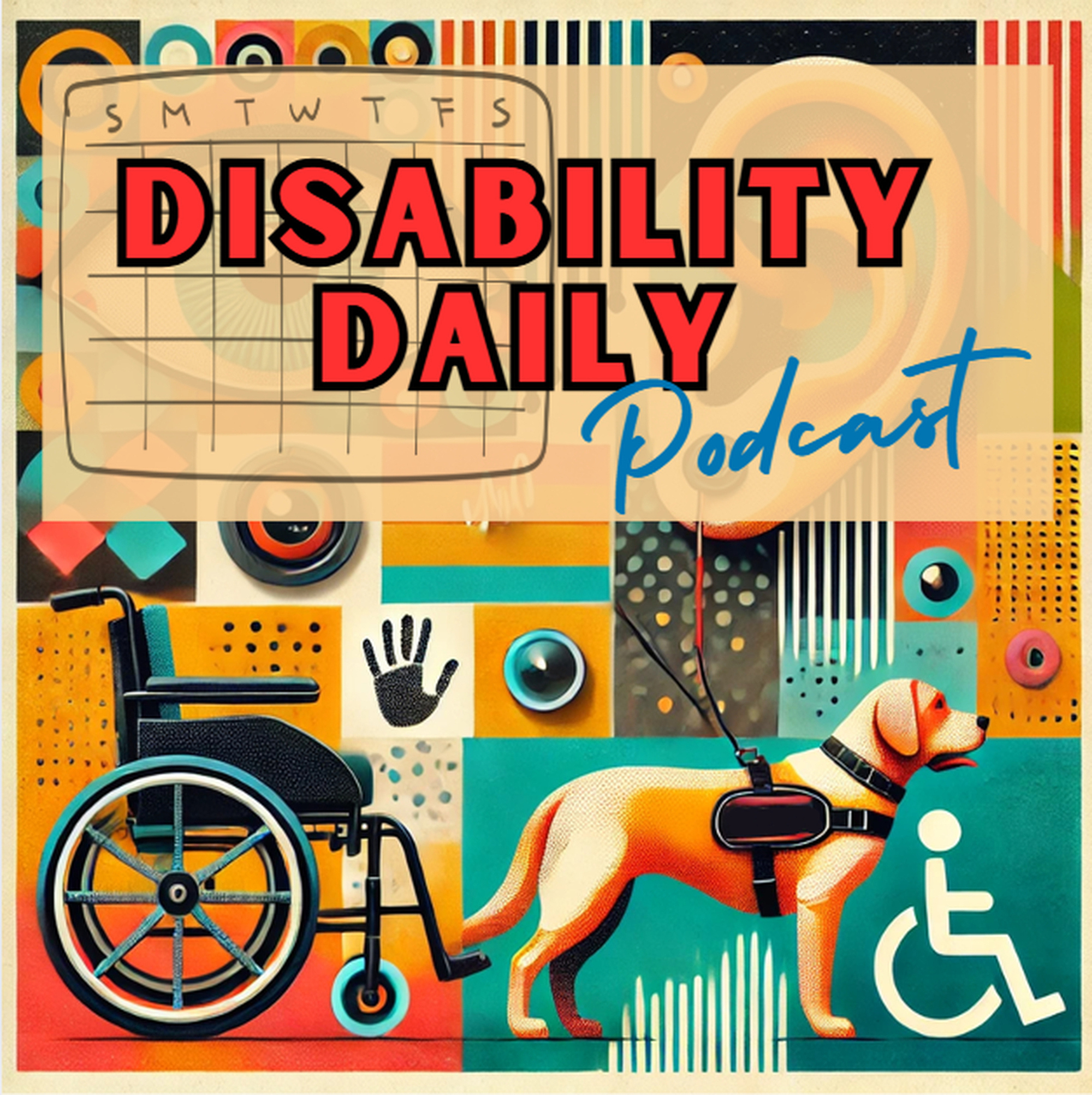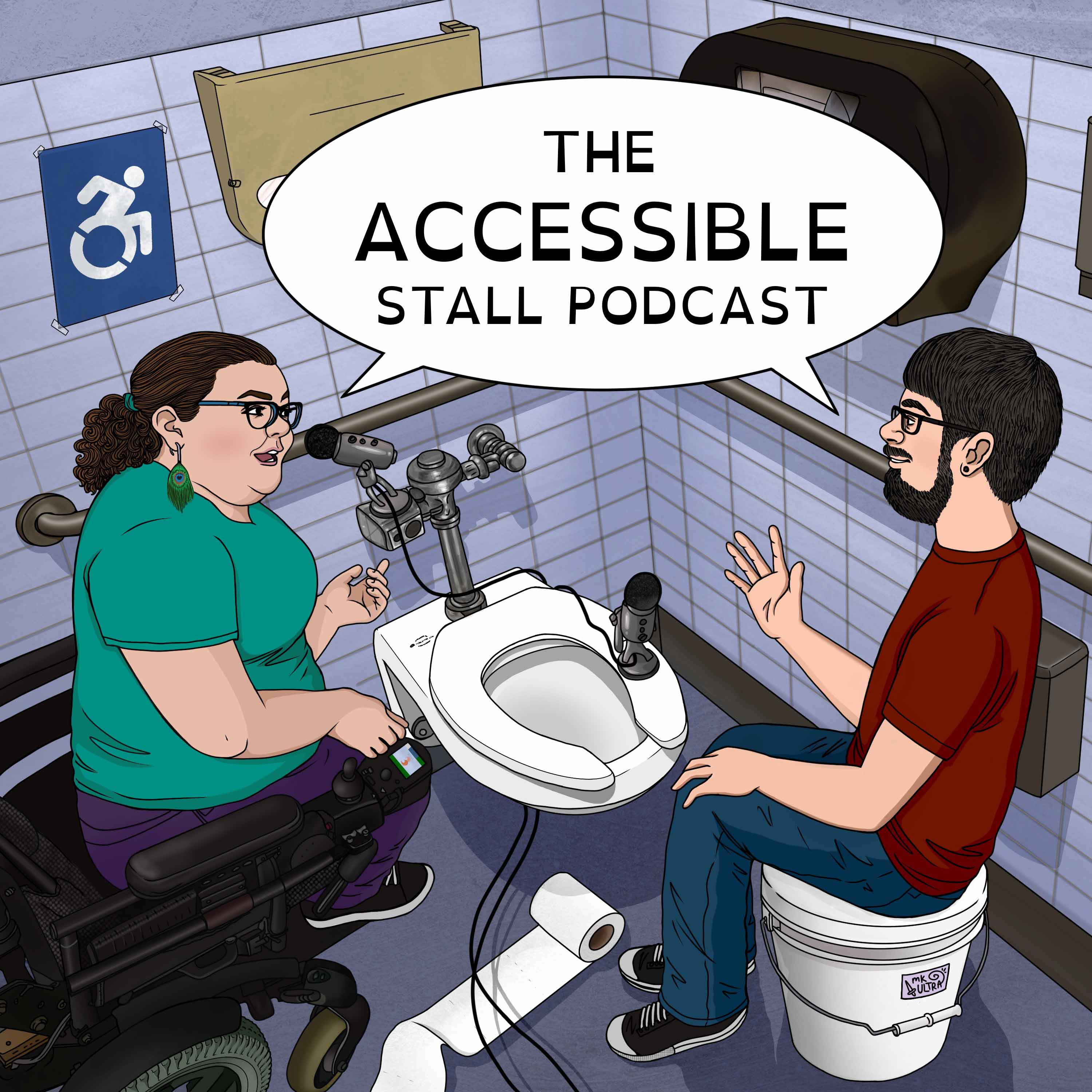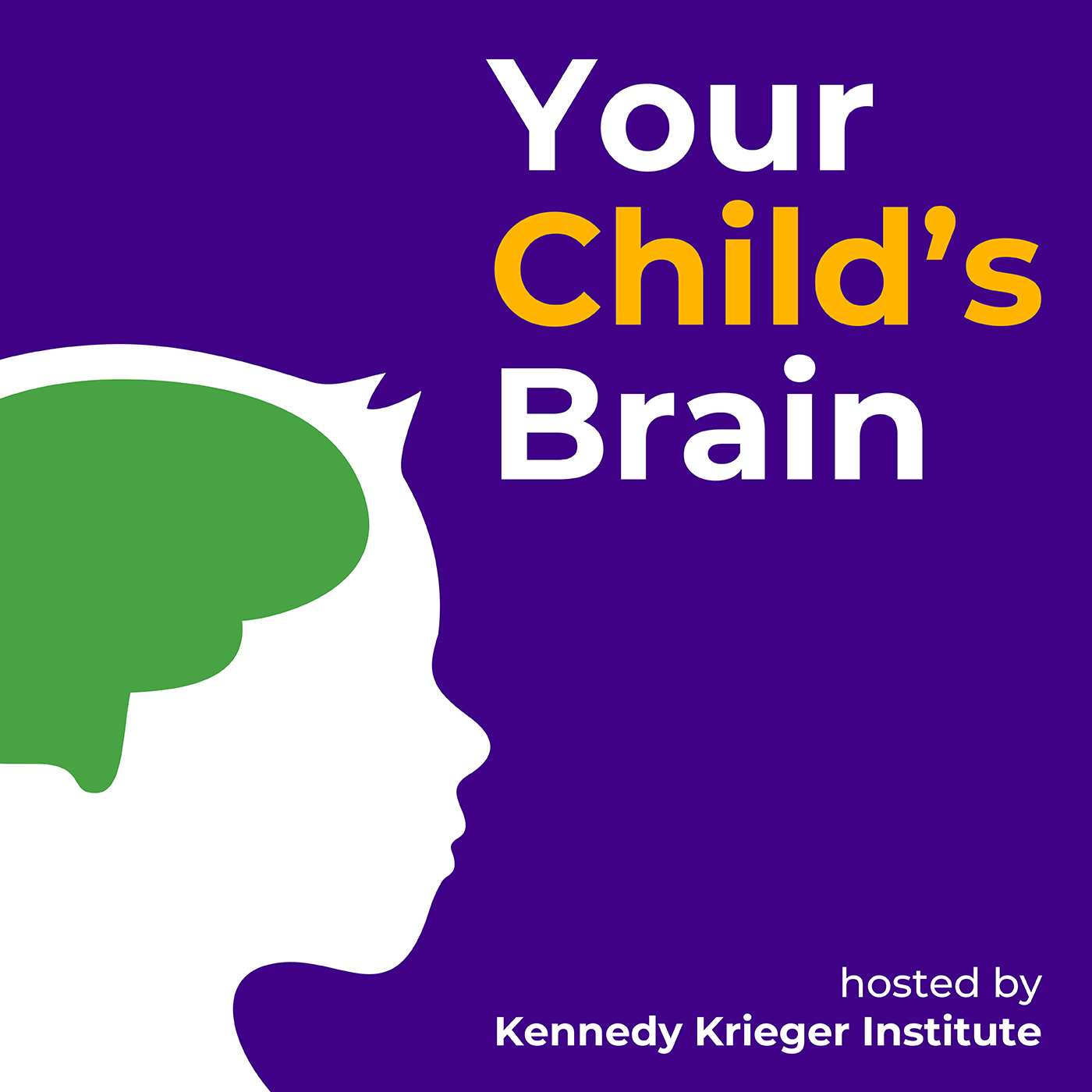
The Post Secondary Transition Podcast
A podcast focused on the ins and outs (and everything in between) of the secondary transition process for families of students with disabilities! Hosts Meghan (Smallwood) and Patrick (Cadigan) serve as supportive guides, leading families step-by-step up each rung of the transition ladder.
Also check out our parent website: https://www.postsecondarytransition.com
The Post Secondary Transition Podcast
055. Empowered Beginnings Pt. 3 - Junior Year
Hosts Meghan (Smallwood) and Patrick (Cadigan) are back for Season 3! At the start of the upcoming school year, they continue their discussion of what transition can look like during junior year. They talk about considerations around applying for medical assistance and Social Security, healthcare transitions, the importance of financial planning, career exploration and never forgetting the importance of those basic independent living skills (for all levels). Join the conversation.
Episode Keywords:
students, families, transition, junior year, resources, college, discussion, update, IEP
Links:
Certificate Track (page)
Diploma Track (page)
Guardianship (page)
Guardianship Alternatives (page)
YouTube channel
ThinkCollege.net (site)
Disability support offices- college (more info)
Jobshadow (site)
Again, a special shout out to fellow podcasters Ashley Barlow and Mary Cardle for allowing us to share some of their content on our feed while we prepped for this upcoming school year. Make sure to click on the following links and hit the subscribe button:
- Special Education Advocacy with Ashley Barlow
- T21Mom Podcast.
To download a copy of a transcript for this episode or any of our previous conversations, click here.
Also visit our Podcast webpage to find links to all of our other discussions; go to www.p2transition.com.
Additional information about post-secondary transition can be found at our website.
The Post-Secondary Transition Podcast Facebook page.
Visit our YouTube Channel to find additional video resources.
Intro/Outro music by AudioCoffee from Pixabay.
Transition music by Joseph McDade from Transistor.
Welcome, this is the Post Secondary Transition podcast. We have conversations around the ins and outs of the transition process for families of students with disabilities. I am one of the hosts. My name is Patrick Cadigan. I used to be a special educator, but I'm not anymore, and I do have a co host, and who would that be?
Meghan Smallwood:And I am Meghan Smallwood, and I am also a public school transition coroner, just like Patrick.
Patrick Cadigan:So we've had some updates. We are heading into season 3. We've been doing this for about three years now.
Meghan Smallwood:Crazy.
Patrick Cadigan:Yeah, I know, and we've had a lot of different discussions, but yeah, an update on both of us, because I have now transitioned. I am no longer considered a special educator, which is to say that I am not in the classroom, working directly with students as one of their teachers. I, like Meghan, am now a transition coordinator. However, Meghan has had her own update news...
Meghan Smallwood:So now I am technically the resource teacher for secondary and transition services. So I am overseeing transition for our county, which is pretty cool.
Patrick Cadigan:I.E. she is now officially my boss.
Meghan Smallwood:as one of our fellow transition people like to call me the boss.
Patrick Cadigan:All right, so quick update for where we are at; before we took a break for the summer, we had engaged in a series of discussions around what families could expect had another discussion around sophomore year, before taking a break, where we had a great, great discussion with Audrey levering from parents place in Maryland, and she talked to us about supported decision making. If you have not had the opportunity, please go and listen to that. We even uploaded the full conversation so you can consume it in two ways. You can either do it in two parts or you can do the full conversation. But regardless, we absolutely 100% say that you should go listen to that conversation. It was really good. And real quickly we wanted to take a moment for a special shout out to fellow podcasters, Ashley Barlow and Mary Cardle for allowing us to share out some of their content on our feed while we prepped for this upcoming school year. There will be a link in the show note to both shows, special education advocacy with Ashley Barlow and T21Mom podcast. Make sure to follow those links and hit the subscribe button. But now we're back, and we are going to continue with our discussion around empowered beginnings only now. We've already talked about freshman year. We've talked sophomore year, so we're going to jump into junior year and...
Meghan Smallwood:Junior year.
Patrick Cadigan:Meghan, what are parents in junior year starting to think about?
Meghan Smallwood:So I think, like we've always said, a lot of these things kind of are fluid, right? And you're thinking about it more than just one year. It's not just dedicated to junior year senior year, but when your student is reaching junior year, it's probably close to when they're turning 18. So that would definitely be a time that we're going to have a conversation about applying for medical assistance. However, many of our friends already do have that if they're on a waiver or for whatever situation they may be in. So might not be something they need to worry about, but in terms of medical assistance in our state, it is something that the students have to have, even if it's a secondary medical insurance when they exit in order to access the state funding, which just shows the need for it, the long term need for it. So we definitely encourage our families to apply, and in our county, our transition coordinators can help the family with that, but usually we find it's easier to do that application process or look at applying for that assistance after you go through the whole social security. I don't want to say fun, because it's not fun. We know that, but the whole application process, which I know we've had many conversations around before, and other podcasts dedicated to it, but usually that's the order I would encourage parents to do after 18, what you can make sure they turn 18, first SSI and then medical assistance.
Patrick Cadigan:Playing off of that as we're getting closer and closer to 18, one of the other things that a lot of families start to gravitate towards is the discussion or. The consideration of guardianship or its alternatives, right?
Meghan Smallwood:Right. And that's something that, like we said, just talk to Audrey about and the pros and cons of both sides. But that's definitely something now, as they're approaching a junior year, reaching their junior year, you definitely want to be researching, talking to other families that have thought about it, gone through the process, if you have an attorney, if you're looking for an attorney in your area, talking to someone legally about it, and just weighing both sides. I know at 18, two back to the medical piece, a lot of doctors will remind parents that as your child turns 18, they are seen as an adult, and that's something to think about, even if they're still going to their primary pediatrics office, that it is going to change, because typically the doctors are going to look at them for their answer to the medical questions, and not mom and dad. Now that is dependent on the doctor and how close of a relationship and if they know your circumstances, but it's just an overall generalization you need to be aware of, because I know families that things pop up and they're sent to a specialized, specialized office, and they're new to the student, and that's the first hurdle that they're they're dealt with. So just be aware of the changes that come with healthcare transition. And I know parents, place of Maryland's in our area is wonderful about providing information and resources about that.
Patrick Cadigan:Well and I will also throw out there that if you are new to this discussion and you're just looking for some general information, or you don't even know where to start, go check out our website. Go to wwwpostsecondarytransition.com. Under our resources tab, we have two links for one guardianship and then two guardianship alternatives. And within both of those pages there are a lot of additional links, links to a lot of stuff. And...
Meghan Smallwood:Yeah.
Patrick Cadigan:...you know, we always encourage our listeners that if you find, if you think that there's something that we should know about or you'd like to share out with other people. Hey, send it to us. We'll we'll post it. We've done it before. We'll do it again. We think it's really helpful.
Meghan Smallwood:Yeah, and there's new information always coming out, especially when you think about the alternatives to guardianship, one of those being supported decision making, which Audrey talked a lot about. But there's been some great videos that have come out about the information and from the state, actually, that families can watch and, you know, go over it, you know, numerous times, just to make sure they have a good grasp on what it means and what it could look like for their child. So definitely dive in and look at the the information out there.
Patrick Cadigan:I'll also say that you can always go check out our YouTube channel as well, because we've curated a lot of those available videos if they're available on YouTube, which a lot of them are, we have them in very convenient playlists, so that could also be helpful.
Meghan Smallwood:Yeah, continuing on with junior year. I mean, this is usually the time to if you've applied to DDA and your child has been found eligible for future needs. This is usually that time where the switch can be made. If you reach out to the DDA eligibility specialist, with the help of transition specialist, if you have one, to make sure that they're seen as being current request, because they will be exiting the school system in three years. So we need to make sure that they're still in their system, they're up to date, and that they're bumped up to current request. And that will give you the choice to start selecting an agency for a coordinator of community service our CCS, which is the acronym for that.
Patrick Cadigan:One other thing that you could consider is attending a transition fair
Meghan Smallwood:Yes, and one, oh, we have one plan for our county coming up in the fall. But these are just chock full of information about the community, school related resources, job related resources. I know our says breakout sessions that really go over that specific information about some of the agencies and what's to come after they exit. So it's great to go to every year when it's offered. I know, my first year as a transition coordinator, I just went with a bag, gathered up all the information from all the tables, and went home like every other parent, overwhelmed with the amount of resources I had at my disposal. But you know, you just pick away at it little by little. Try to, like, categorize it by okay, this, these go together. These are similar resources, and this is something different, and I think just that exposure will really help you in the long run.
Patrick Cadigan:As we're talking about this, I kind of want to shift focus for a second and thinking about our families, who will have students who will be graduating with a high school diploma. So what is a good place for them to start to think about in turn from junior year.
Meghan Smallwood:Yeah, and I know, you know, with our typical students, that's usually the year that students are really starting to think about college. You know, the guidance counselors are coming in and really talking about them, about researching, deciding what kind of career field they're in. Interested in narrowing down where they might want to visit and apply to going over all that great information. Same goes for our students. You know, however, we want to make sure they're considering both college and career readiness. I mean, not everybody may be going to college, so let's look at what other options there. Are there trade schools? Are there apprenticeships, employment? What kind of job do you want to have, and what kind of schooling or preparation do you need for that? Are you looking in state? Are you looking out of state? I mean, this is really the time that you want to lean on those people that are there to help you and know more about this, this information to find out what the options are. I think that also plays into that they need to talk to their guidance counselor to really plan for that academic piece and make sure that they have all their graduation requirements covered and plan to be on track to graduate within that four year span. And if they're not, that's okay, but have a plan to know what that fifth year is going to look like, or if needed, that sixth year, and make sure that they have a viable schedule, so it's not like you're bombarding it and squeezing everything in for four years just because you think it has to be done. We want to make sure it's meaningful and that they also have those opportunities to try out different classes that may align with their career goals as well, while they're in the school.
Patrick Cadigan:Rolling into that one. Then you can also, it's funny to hear me say this out loud, because what I was going to throw out one of the next, like tabs, if you will, is financial planning. But I feel like I don't care if you're in freshman year, sophomore year, junior year like families are always thinking about the financial planning side of it.
Meghan Smallwood:Yeah, and I think too, you know, we may be talking about students with disabilities, but anytime there's something offered through the county, and I know ours does it for student services, for all families, anything that's related to planning for the future, in terms of the scholarships, grants, you know, any kind of financial aid option, go to it just like you would for your other students. I mean, you don't know what they're going to be talking about, but you could take away something. There's just so many opportunities out there. And if you are looking at college as a path and considering scholarships, you know there are definitely scholarships dedicated to those students with disabilities. So you want to check out all possible avenues.
Patrick Cadigan:Well in playing off of that, and I will say that this is actually a conversation that existed in the Cadigan household recently in terms of filling out the FAFSA or the federal student aid form, even if you think you don't need it, or if you think that the time frame has already passed. Just don't be afraid to ask questions. Go to guidance counselor, go to anybody that you can think of. We recently ran into a thing where we thought that the time frame to apply for FAFSA had passed. And as it turns out, the college that my wife goes to to get her MBA had some additional resources, and so we're now going through that process. So don't be afraid to ask questions.
Meghan Smallwood:Yeah, you're not going to find out the answers unless you asked.
Patrick Cadigan:And then, so again, for families and friends who are anticipating going the college route, the idea is going to be around preparing for those standardized tests if they're going to take 'em.
Meghan Smallwood:Yeah, absolutely. And I and you know, just like every other student, you're going to want to prepare, you're going to want to take it maybe more than once. But also I know I would encourage, I encourage all the students at my school to really get research their testing accommodations, to make sure you have them in place while you're taking those tests. But also check out to see, because there's a lot of colleges that it may be optional now to admit those scores. I mean, things have changed since I know I went to college. So if you are interested in a specific college, or you started looking, I would see what the requirements are before you stress yourself out. If testing really isn't your thing.
Patrick Cadigan:And if you need a resource in order to be able to do that, don't forget that we had talked in the past with Maria Paewanski from ThinkCollege. So go to thinkcollege.net. That is a fantastic resource as you are researching those post secondary options.
Meghan Smallwood:And you know, while we talked about before planning those campus visits, you're going to see those different places that you're considering for post secondary education, whether it be college, whether it be a trade school, but I always encourage students to when you go on those visits, make sure to find out where their disability support services office is and see if you can make an appointment just to meet with them. Every college has one. The way they handle things, and the amount of support they provide is different, so definitely check it out. And if you know anyone that's going to the college, you might be using them ask questions and see what they have to say. I know our local community college is phenomenal with their disability support services, so it's we have high expectations after that.
Patrick Cadigan:One of the other things that I hear quite a lot about is refining those career goals and then working to build out those work experiences, right?
Meghan Smallwood:Yeah absolutely. You want to just start really thinking about what it is you are interested in doing. You know, what do you want to be when you grow up? I talk to students and they're like, engineering, and I'm like, Okay, tell me what you want to do, because that's a very broad topic, and I'm not an engineer, I don't know what you're saying. And then they're like, Well, I mean, I want to work on machines, or I want to work on computers, so I think it's really helpful. And there's so many great resources out there. I know we've used different programs before, and I know some of our career research development classes use something called like job shadow, and you can actually get in there to the career that you're interested in and look at specific details about it, or they might show you other related careers to that job that I didn't even know existed. It's out there. You just need to really look and find it and explore a bit more. So, you know, don't limit yourself based off of, you know, just I want to do computers.
Patrick Cadigan:Well and playing off of that. You know, it's funny when you were talking about having the conversation with the students and what you very often hear, one of the things that I constantly hear is, well, what do you want to be a YouTuber. Okay.
Meghan Smallwood:Oh, my son says that as well.
Patrick Cadigan:And I...
Meghan Smallwood:Yep.
Patrick Cadigan:...will guarantee you there is a lot more to being a YouTuber and gaining like I think...
Meghan Smallwood:Yeah.
Patrick Cadigan:...the perception is, is that you can just hit the record button and then you know...
Meghan Smallwood:Yep.
Patrick Cadigan:...the the fan base is going to follow. Well......no, no.
Meghan Smallwood:And I also have to remind him that you may want to be a YouTuber, but think of all the other people want to be YouTubers, and how many there actually are that are making money from it. The other one I do here is video game designer. I want to be a video game designer.
Patrick Cadigan:Yeah. Then, then again, that not understanding the amount of math and the a lot of...
Meghan Smallwood:The technical part that goes into it.
Patrick Cadigan:A lot of those video game designers are...
Meghan Smallwood:Yeah.
Patrick Cadigan:...like, electrical engineers and like...
Meghan Smallwood:Right.
Patrick Cadigan:...there's a lot to it well.
Meghan Smallwood:And when I hear that, especially, you know, freshman, sophomore year, I really encourage them to look at some of the career academies I know our county offers, because we do have classes in the county that they could experience those parts before they actually graduate, to find out if that is something they really like or they don't like. So it's good to see what there is out there in school before you graduate.
Patrick Cadigan:And I do want to clarify that I don't throw that kind of stuff out there to discourage anyone. I really don't. It's just that a lot of times it's it's like, okay, I hear what you're saying and but, and these are some of the considerations......that you have to take into account when you're thinking about jobs like that.
Meghan Smallwood:The other thing I encourage students is that if you think there's a profession that you're really interested in, do you know anybody that's in their profession? Does mom or dad have a friend that's a physical therapist? Let's say that you could actually go and ask questions about the job, or maybe they'll let you come to work one day and just follow them around, shadow them to see it. Those kinds of opportunities would be amazing to really get in there and talk to someone in the field and find out some of the things that you may not be familiar about it. You know you hear it just as general. I want to be a teacher, but you don't know all the background stuff, like you were saying that goes into a job. So using all your potential resources, you know, inside of school and outside of school.
Patrick Cadigan:Well and I'm going to go in there and then say, thinking about outside of school, one of the other suggestions that we often make for diploma bound as well as non diploma bound, friends don't don't play off those independent living skills.
Meghan Smallwood:You definitely want to be prepared, whether you're staying at home for college or school or or you're going out on your own. It's always interesting to me, because beginning of the year, I'll send out questionnaires to families, and there'll be a little section for our diploma bound friends too. And you know, do they need help with finances? Do they now need help with laundry, things like that? And there's a lot of students that still get that help as juniors and seniors, and that's fine. I get it. You know, that's your baby. You want to take care of them, but the same time, you want to make sure you're preparing them as a whole person, so anything you can work on with your child in preparation for that 18th birthday and after, the more the merrier.
Patrick Cadigan:Well, and adding to the supporting the whole person, one of the things, and I will say that this made a huge impression on me in the past, when you have talked about adding to your personal support network and finding out those other families.
Meghan Smallwood:Yeah, that circle of support. And I know when I usually start that conversation with a lot of families, they're like, "No, I don't have anyone. It's just me, me and my husband, and we're going to take care of them for the rest of my life." And I'm like, okay, and then what you know who else is in your life that is familiar with them and can provide some support. You know, not even when you're gone, but just now, I think it's just so important to know who's around you, because they also provide you with connections and can give you more to add to their life, to make it more meaningful. So just, you know, think, and they might not even be someone that you would put two and two together and think, Well, yeah, they can absolutely help be a part of our circle of support. For example, church. I know former students who, you know, they go to church every Sunday. They see the same people, and they have the same group, and they're familiar with their daughter. And you know, when they were talking about her exiting the school system and they went the self directed path, I'm like, Well, who do you know from church that could work with her potentially? And they're like, oh yeah, this person's there every Sunday. They know her so well. So just really thinking outside the box
Patrick Cadigan:Also, and I know that it sometimes can turn into a little bit of a tricky conversation around the idea of social media, because, of course, with some of the connotations that that brings. But both Meghan and I are part of Facebook groups that you know that these are, these are groups of people, families, parents, students, and they are posting questions, asking questions, sharing out their supports, their ideas, their experiences, stuff like that. I will tell you that used well, social media can be an invaluable resource for families.
Meghan Smallwood:Agree, I also say, though, to make sure you're double checking things you hear and not just taking one person's word. For you know, be mindful one person's opinion may just be their opinion because of whatever tainted it or their experience. So yeah, just make sure you're double checking.
Patrick Cadigan:That, then, I would say, fits very nicely, though, into that notion of building out self advocacy skills like, you know, hearing information, processing the information, but also for the students and even the families as well. You know, taught like building, like doing it.
Meghan Smallwood:Yeah, and I think junior year is usually when I start really talking with the students, when we do transition interviews, and asking them, you know, do you know what your IEP says? What are the accommodations that you use on a daily basis? And I can't even tell you how many students look at me and they're like, what? And I'm like, Well, do you get copies of notes? Do you get this? And they're like, Oh, yeah. And I know there's a lot of case managers out there that really take the time to sit with the students on their caseload and go through the IEP with a fine tooth comb to explain it to them, but I think it's just so important for the students to really be aware of their IEP, what it says and what they're getting so that they know moving forward, what they need to advocate for.
Patrick Cadigan:Being is that this has been a conversation that we this has been an ongoing conversation that we have been holding. But just a very, very quick recap, we have always talked about keeping an at home folder. Meghan, what should (as a as a reminder), what should families be keeping in those at home folders?
Meghan Smallwood:And I will say, I know, since you know 2020 we've got electronic with a lot of things. So it's okay if your at home folder is electronic on your desktop or backed up somewhere, but you want to have the most updated copy of their IEP for sure. You're going to need that when they go on to their post secondary placement or whatever agency that they might be moving on to, just to show what kind of accommodations they had, and sometimes the documented disability. Along with that, you want to have any related assessments, especially that's psychological if there's an occupational therapy or physical therapy and educational or speech assessment, you want those as well and any other relevant information. So if you're getting any correspondence from an adult agency or one of the state funded organizations, any community announcements, put them all in that folder. I think it's important to know, and we go over this usually with my families in the school that most organizations and I found, even with most colleges last year, they definitely want assessments within a three year window. Some were a little pickier. They even wanted it within, like the last year or two, but three year window would, would be my advice. So if you have, and I know we've said this before, if your child's having a reevaluation meeting coming up and they're reviewing when the last assessments are completed, make sure they're within the last three years. If they're getting ready to exit soon, if not. Um, it may be time to talk to the team about having the most recent evaluations completed.
Patrick Cadigan:I would say that that would be a good place for us to pause the conversation for junior year, and then the next time we meet up, we'll be able to have that conversation around the senior year. And senior year is interesting because of the reality that we have diploma Bound students who will potentially be moving on, and then we have our non diploma bound friends who will then be transitioning into a different part of will be diverging into a different part of that, and then the expectations moving forward from there. So yeah, it'll be a really good conversation to hear.
Meghan Smallwood:Yeah, I think that was a good recap and a good way to start our next year off.
Patrick Cadigan:Good way to start the next year off.
Meghan Smallwood:Awesome. Thanks, everybody. We would love for the information from this and all our other discussions to reach as many families as possible, and we need your help to do that. So please like, follow and share our podcast. You can find all our conversations on the major podcast platforms, including Apple, Spotify, YouTube music, that's just to name a few. So please share and share often. You can always find links to the information from this discussion in our show notes. Check out our YouTube channel. We've done some of the legwork for you by curating videos of topics that revolve around transition. We have playlists we cover guardianship, alternatives to guardianship ABLE accounts, and there's still more to come as we are finding those videos that we think will be valuable to use. So please be sure to subscribe there as well. And then finally, check out our website, which is full of information and links to resources around the transition process. So make sure to go to www postsecondarytransition com. We thank you so much for the time you spent with us, and look forward to talking again soon.


